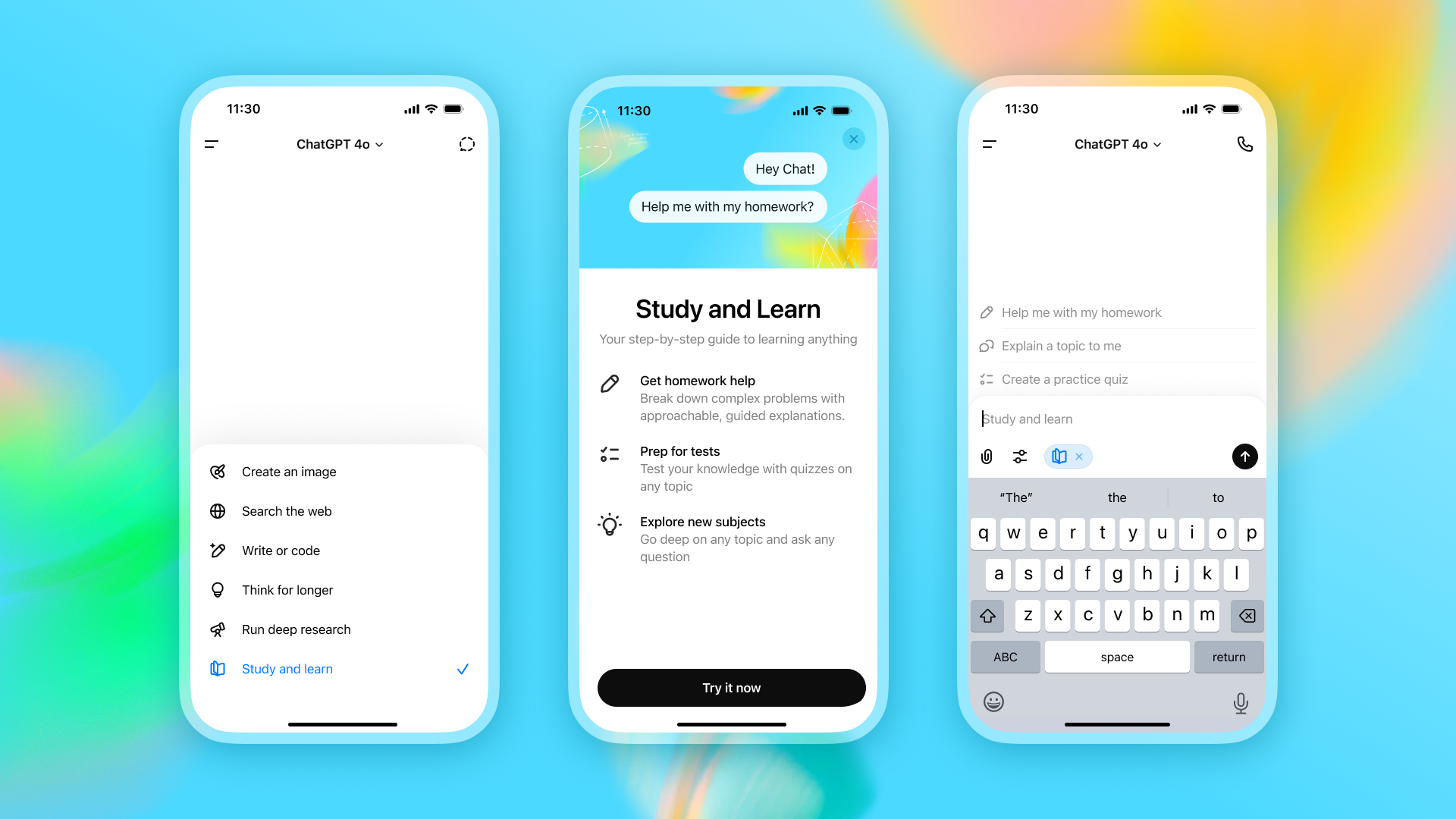3 ways to use the new ChatGPT Study mode that aren’t for homework
Plenty to learn after graduation

OpenAI has understandably pitched its new ChatGPT Study mode as a tool for students. The Socratic questioning, quizzes, memory checks, and feedback are designed to help students learn topics in ways that best suit their individual learning needs.
However, the educational features enabled by selecting the “study and learn” icon might be just as helpful after school as they are to high school or college students working on their homework. I've experimented with a few ways it might be useful in my own life as I strive to learn new skills outside of any formal class structure.
French fun

Learning new languages is something I've worked on off and on throughout my entire adult life. I've even had some success with using ChatGPT for practice conversations. I decided that Study mode might be a good supplement to my efforts, so I turned on the educational feature to ask for help learning French, at least at a very casual, small talk level.
Instead of giving me a vocabulary list or a grammar table, the AI started refining my request with questions like, “What are three everyday situations you want to be able to handle in French?" and “What have you found confusing about learning French before?" It focused on specifics and then transitioned into real-time quizzes, asking me to “Fill in this sentence: ‘Je ______ un café, s’il vous plaît.’”
When I got it right, it added nuance. When I got it wrong, it didn’t just say “wrong,” it explained why and gave me another similar question. Over the course of 20 minutes, I went from passively reviewing to actively learning new ways of speaking. I can easily picture using Study Mode to enhance my skills.
Financial learning
I next pursued a more personal learning goal: understanding personal finance. While I'm hardly ignorant on the basics, I tend to glaze over when reading about index funds or the individual elements of a mutual fund.
So I asked ChatGPT in Study Mode to give me a foundation on personal finance. The AI responded by asking about what kind of financial information I wanted to understand, such as budgeting, saving, or investing, then went into asking about how I spend money and what I want to spend in the future, then started guiding me into undestanding investment with examples and then quizzed me based on my earlier responses so that I could start thinking about invemstments as they actually relate to me. I'm not the Wolf of Wall Street or anything, but even 20 minutes of "studying" had added some useful references for my future financial decisions.
Sign up for breaking news, reviews, opinion, top tech deals, and more.
Calculating with context

I've had a guitar for a long time, and, like with learning a language, it's a skill I've developed on and off for years. Although AI tools have helped me stay disciplined in my practice, I wanted to explore what Study Mode has to say about improving my learning. The AI started by asking what kind of music I want to learn, my current ability, and even a specific song or skill I might like to focus on first.
When I suggested fingerpicking, it set up a miniature practice curriculum. It picked patterns and told me to report back how it felt. It then explained the mechanics behind alternate picking, gave me a rhythm exercise, and offered a few ways to understand what I was doing so that I could absorb some of the music theory, too. I don't think it will turn me into Joni Mitchell, but I can see it being great for helping learn niche elements of guitar. on and off.
Study Mode was surprisingly flexible as an educational tool. I was impressed with the real-time curriculum development. It would obviously not be something I'd replace an actual teacher with, but it did push past surface-level lessons in a way I think might actually help stretch my brain without having to work toward a diploma.
You might also like

Eric Hal Schwartz is a freelance writer for TechRadar with more than 15 years of experience covering the intersection of the world and technology. For the last five years, he served as head writer for Voicebot.ai and was on the leading edge of reporting on generative AI and large language models. He's since become an expert on the products of generative AI models, such as OpenAI’s ChatGPT, Anthropic’s Claude, Google Gemini, and every other synthetic media tool. His experience runs the gamut of media, including print, digital, broadcast, and live events. Now, he's continuing to tell the stories people want and need to hear about the rapidly evolving AI space and its impact on their lives. Eric is based in New York City.
You must confirm your public display name before commenting
Please logout and then login again, you will then be prompted to enter your display name.